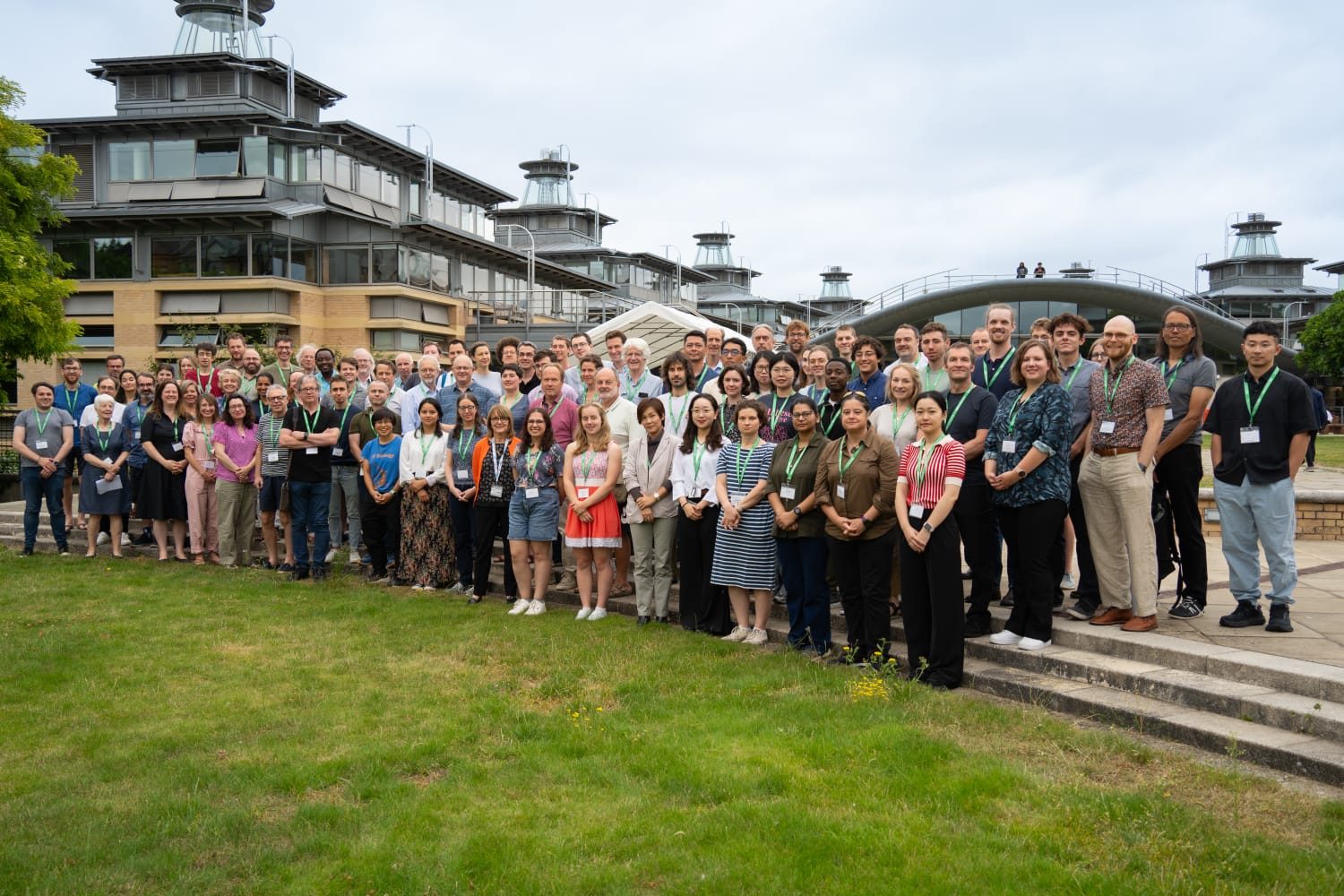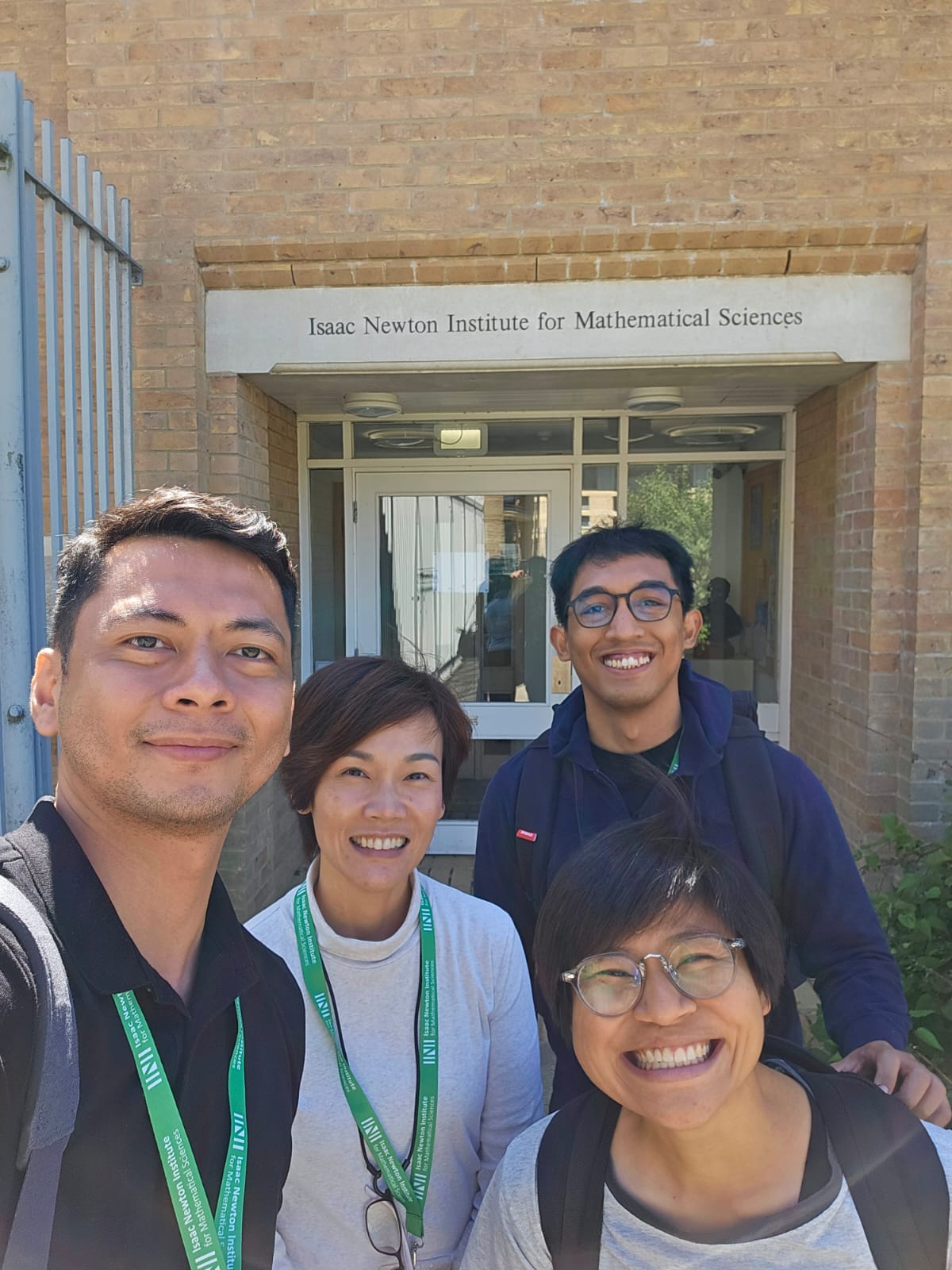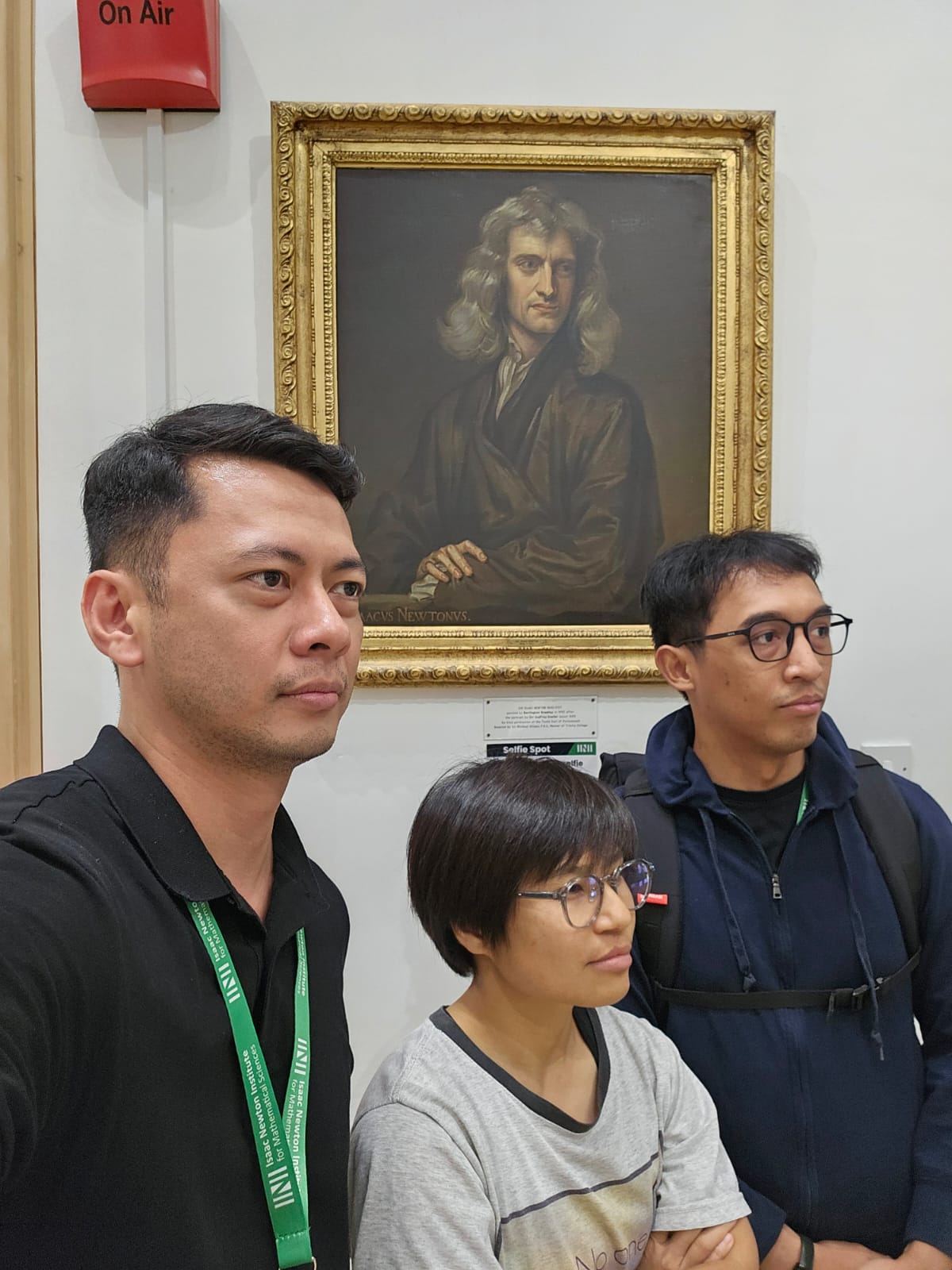Reflections from the INI Pandemic Preparedness Workshop
by Bimandra Djaafara
As an early career researcher working at the intersection of infectious disease modelling and public health policy, I recently attended the “Modelling and Inference for Pandemic Preparedness” workshop at the prestigious Isaac Newton Institute in Cambridge (5-9 August 2024). This five-day workshop brought together experts in epidemiological/mathematical/statistical modelling, focusing on two interesting parts of infectious disease modelling: 1) statistical inference and 2) policymaking. These are two areas that have become increasingly crucial in our post-COVID world.
I was honoured to receive an Early Career Researcher Bursary to present my work on modelling efforts during the COVID-19 pandemic in Indonesia. My talk focused on two things: 1) my experience in doing research and its intersection with policymaking (one that I admitted that it’s less clear how my research influenced policymaking; maybe I’ll discuss this in another blog post) and 2) future possibilities: specifically, our new initiative with some of my Indonesia colleagues, INDEMIC (Indonesia Infectious Disease Modelling Community). This platform aims to bridge the gap between modellers and policymakers in Indonesia while trying to build local capacity for infectious disease modelling.
The response to INDEMIC was encouraging, highlighting a growing recognition of the need for strong modelling communities in low- and middle-income countries. As the pandemic showed us, infectious diseases don’t respect borders, and that’s also how we should grow our scientific collaborations. Another fond response I remember was from Professor Kevin McConway from The Open University. In my presentation’s conclusions, I mentioned that when I talked or had discussions with policymakers, I had a mindset that I was ‘learning’, not ‘helping’. After the presentation, he said he really liked that approach!
While the technical discussions were enlightening and exciting (but sometimes also confusing for me!), some of the most impactful moments came from conversations about who we are as a scientific community. Dr Anne Cori’s powerful presentation on privilege in epidemic modelling careers and Dr Shweta Bansal’s examination of racial and ethnic imbalances in our field particularly resonated with me. As a researcher from Southeast Asia, their insights into the structural challenges and inequities in academic research felt deeply personal and validated many of my own experiences. This motivates me to do more work on building capacity, collaborating, and elevating more modellers’ profiles from my country and region.
I also have to mention that I had a chance to meet and talk with Dr Jessica Metcalf in person. Her plenary talk at the EPIDEMICS conference in 2019 inspired me a lot! I liked how she summarised and framed her research into an interesting storyline that makes you want to listen more and more. I tried to incorporate her presentation style into how I frame and present my work (but poorly, of course, haha). Nevertheless, it was great to be able to talk with her in person.
I returned from this workshop with a stronger conviction about the importance of building local capacity while maintaining global connections. I’m privileged in a way that I had a chance to study and work at global institutions with a network of brilliant minds in modelling. It is now how I use this privilege to support many brilliant minds in my country and region so we can build our capacity as modellers and collaborate better to prepare for the next pandemic or other current health challenges in our country and region. We, as a global community, face universal challenges in a pandemic or when we prepare for a pandemic, but solutions to those challenges should be driven locally with support from our global network. I hope our initiatives, such as INDEMIC, can help promote a more equitable response to future health challenges.
Resources
- Watch the talks referenced in this post on YouTube
- Visit the INDEMIC website to learn more about our activities or collaborate with us!
Pictures!



- Participants of the workshop
- With MIDSEA peeps (Chris, Pan, and Hat)
- With Chris and Hat, also with Mr Newton himself, we’re trying to figure out what he’s looking at